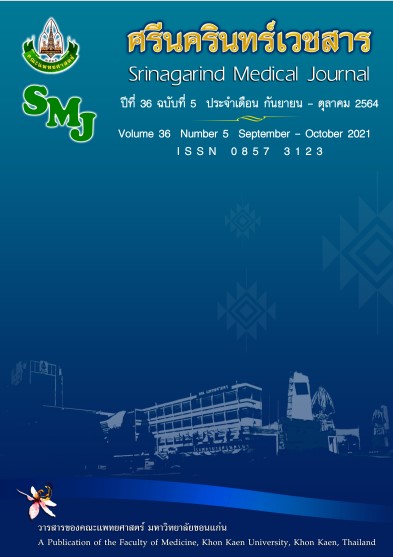The Neuroprotective Effect of Caffeic Acid against L-Methionine Induced Memory Deficits in Adult Rats
Keywords:
Caffeic acid; L-methionine; Memory impairmentAbstract
Background and objective: L-methionine is found in natural products such as meat, milk and cereal grain. It is a non-essential amino acid and can be changed to homocysteine by methylation. Excess accumulation of homocysteine is a course of hyperhomocysteinemia and leads to memory deficit. Caffeic acid is a phenolic compound found in coffee and tea. Previous studies reported the neuroprotective effect of caffeic acid on memory and cognitive functions. Therefore, this study aimed to determine the neuroprotective effect of caffeic acid against L-methionine induced memory deficit.
Methods: Sixty male Sprague-Dawley rats were divided into 6 groups: control, L-met, caffeic acid 20, caffeic acid 40, caffeic acid 20+L-met, caffeic acid 40+L-met groups. The control group received propylene glycol and carboxymethyl cellulose by oral gavage once a day for 28 hours. The caffeic acid 20, caffeic acid 40, caffeic acid 20+L-met, caffeic acid 40+L-met groups, caffeic acid (20 and 40 mg/kg) and L-methionine (1.7 g/kg) groups were administered by oral gavage once a day for 28 days. Changes of body weight and locomotor activity were examined. Moreover, spatial and recognition memory were determined using the novel object location (NOL) and novel object recognition (NOR) tests, respectively.
Results: The results demonstrated that caffeic acid (20 and 40 mg) and L-methionine did not have a negative effect on the body weight and locomotor activity. Impairments of spatial and recognition memories were found in the L-met group, but was not detected in the other groups
Conclusion: This study reveals that caffeic acid (20 and 40 mg) could potentially protect against L-methionine induced memory deficits.
References
2. Miller. The Methionine-Homocysteine cycle and Its effects on cognitive diseases. 2003; 8(1): 7-19.
3. Kolling J, Longoni A, Siebert C. Severe hyperhomocysteinemia decreases creatine kinase activity and causes memory impairment: Neuroprotective role of creatine. Neurotox Res 2017; 32(4): 585-593.
4. Koladiya RU, Jaggi AS, Singh N, Sharma BK. Beneficial effects of donepezil on vascular endothelial dysfunction-associated dementia induced by L-methionine in rats. J Heal Sci 2009; 55(2): 215-225.
5. Roesler R, McGaugh JL. Memory consolidation. Curated Ref Collect Neurosci Biobehav Psychol Published online 2016: 1-21.
6. Manach C, Scalbert A, Morand C, Rémésy C, Jiménez L. Polyphenols: Food sources and bioavailability. Am J Clin Nutr 2004; 79(5): 727-747.
7. Piazzon A, Vrhovsek U, Masuero D, Mattivi F, Mandoj F, Nardini M. Antioxidant activity of phenolic acids and their metabolites: Synthesis and antioxidant properties of the sulfate derivatives of ferulic and caffeic acids and of the acyl glucuronide of ferulic acid. J Agric Food Chem 2012; 60(50): 12312-12323.
8. Koga M. Caffeic acid reduces oxidative stress and microglial activation in the mouse hippocampus. Tissue Cell 2019; 60: 14-20.
9. Pereira P, De Oliveira PA, Ardenghi P, Rotta L, Henriques JAP, Picada JN. Neuropharmacological analysis of caffeic acid in rats. Basic Clin Pharmacol Toxicol 2006; 99(5): 374-378.
10. Alzoubi KH, Aburashed ZO, Mayyas F. Edaravone protects from memory impairment induced by chronic L-methionine administration. Naunyn Schmiedebergs Arch Pharmacol 2020; 393(7): 1221-1228.
11. Aranarochana A, Chaisawang P, Sirichoat A, Pannangrong W, Wigmore P, Welbat JU. Protective effects of melatonin against valproic acid-induced memory impairments and reductions in adult rat hippocampal neurogenesis. Neuroscience 2019; 406(2019): 580-593.
12. Sirichoat A, Chaijaroonkhanarak W, Prachaney P. Effects of Asiatic acid on spatial working memory and cell proliferation in the adult rat hippocampus. Nutrients 2015; 7(10): 8413-8423.
13. Winner B. Adult neurogenesis in neurodegenerative diseases. Published online 2015: 1-14.
14. Kuhn HG, Toda T, Gage FH. Adult hippocampal neurogenesis: A Coming-of-Age Story. 2018; 38(49): 10401-10410.
15. Lueptow LM. Novel object recognition test for the investigation of learning and memory in mice. 2017; (August): 1-9.
16. Welbat JU, Sirichoat A, Chaijaroonkhanarak W. Asiatic acid prevents the deleterious effects of valproic acid on cognition and hippocampal cell proliferation and survival. Nutrients. 2016; 8(5): 1-11.
17. Naewla S, Sirichoat A, Pannangrong W, Chaisawang P, Wigmore P, Welbat JU, et al. Hesperidin alleviates methotrexate-induced memory deficits via hippocampal neurogenesis in adult rats. Nutrients 2019; 11(4): 1-14.
18. Umka J, Mustafa S, ElBeltagy M. Valproic acid reduces spatial working memory and cell proliferation in the hippocampus. Neuroscience 2010; 166(1): 15-22.
19. Troen AM. The central nervous system in animal models of hyperhomocysteinemia. Prog Neuropsychopharmacol Biol Psychiatry 2005; 29(7): 1140-1151.
20. Lipton SA, Kim WK, Choi YB, Kumar S, D'Emilia DM, Rayudu PV, et al. Neurotoxicity associated with dual actions of homocysteine at the N-methyl-D-aspartate receptor. Proc Natl Acad Sci USA 1997; 94(11): 5923-5928.
21. Wang G, Lei Z, Zhong Q, Wu W, Zhang H, Min T, et al. Enrichment of caffeic acid in peanut sprouts and evaluation of its in vitro effectiveness against oxidative stress-induced erythrocyte hemolysis. Food Chem 2017; 217: 332-341.
22. Genaro-Mattos TC, Maurício ÂQ, Rettori D, Alonso A, Hermes-Lima M. Antioxidant activity of caffeic acid against iron-induced free radical generation-A chemical approach. PLoS One 2015; 10(6): 1-12.




